We’re only 1 year old, not 64, but nevertheless we hope you enjoy our second piece of the weekend by highly-talented puppeteer Aurora Adams.


We’re only 1 year old, not 64, but nevertheless we hope you enjoy our second piece of the weekend by highly-talented puppeteer Aurora Adams.
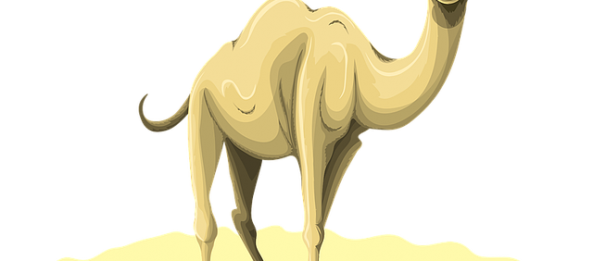
Aurora Adams was part of our launch weekend last year, and we are delighted to have her back with us for our birthday celebrations. If you enjoy this, you will be glad to hear that we will be having more puppetry from Aurora tomorrow.
This is the second of two exhibitions in our gallery by Colin this weekend. The first, entitled “Water” debuted on Friday, 1 May.
“I have had a 4 plus decade relationship with photography mostly as a high level amateur and a couple of years fully professional both in Ireland and back home in New Zealand. My main commercial work to date has been in family and event photography.
I am fascinated by the technical aspects of photography. I learn the capabilities of the equipment and then push them. When combined with my computing background I can get some pleasing results. Sadly the artistic side is hard to teach but I am told I have a good eye.
I hope you enjoy my images. Prints of all these images are available to buy up to A3 size. My website is www.byfocal.ie and I am on fotocommunity.com as Colin S Byford.”
Bloody energy-saving lightbulbs, eh? They’ve attracted a lot of chatter lately, and the last thing this debate needs is rabid, misinformed invective from me. But here it is anyway.
For I have vast and unhappy experience of Compact Fluorescent Lamps (CFLs), aka energy-saving or long-life bulbs. It started when an electrician skilfully smashed one in our small bathroom, a facility used mostly by the kids who were cavorting barefoot nearby. Naturally, he sloped off without a word, believing perhaps that placing one large shard of glass in the sink was sufficient duty-of-care for one lazy shiftless lifetime, and possibly unaware that (a) CFLs contain mercury and (b) mercury is bad.
That’s when I learned the proper, EPA-approved clean-up procedure for such scenarios. I won’t bore you with the details because well, they’re boring, but highlights include not being allowed to vacuum or brush (because that makes the mercury airborne) and using sticky tape to pick up small fragments and powder (because you’ve got all weekend to do this, right?)
Also, be aware that CFLs don’t play nice with dimmer switches. Don’t use them together, or, bang!, you’ll end up exploding both.
We have a CFL upstairs which has started to flicker. Constantly. It cost €7.99 a few months ago, but now it has to go. Last week I replaced the candle-style CFL in a child’s reading lamp, for €5.99, because it was melting.
Yes, melting. The whole energy-saving point of CFLs is they don’t get hot – unless, it seems, a fly gets incinerated inside their ugly tubular coils, which is what happened here. But c’mon, who knew that insects would fly towards lights? You can’t expect the bulb people to plan for something as rare as that, can you?
In the kitchen, we have an even more expensive “soft” CFL which supposedly replicates the warmer glow of incandescent bulbs. It also replicates their curvy, tasteful, almost mammary appearance. Sadly, however, it fails to replicate the not-being-a-piece-of-crap aspect of old-fashioned bulbs, in that it only works half the time. Weeks will pass without a single lumen – then one day it’s back, shining away. And I can’t throw it out if it’s still semi-working. I’m not made of lightbulbs.
Look, I’m being moderate here. I haven’t mentioned CFLs’ alleged links to epilepsy and migraine, the cancer scares around their ultraviolet emissions, and the distinct probability that the CIA is using radiation to brainwash and seduce our beautiful redheaded women. I’m not a crackpot.
But dammit, I’d rather sit in the dark than clean up after another broken “long-life” bulb.
George Wells
Laney Rie is a singer songwriter from Colorado. She has been writing songs since she was 12. Her inspiration comes from her life experiences and the people she has come in contact with. Her musical style is indie pop, with mellow piano and poetic song lyrics. Laney has a soulful sound, especially for her youthful age. She wants her music to impact people in such a way that they don’t feel alone in this world.
This is our third song from Laney this launch weekend. Her EP, Childish Dreams, can be purchased from Apple Music.
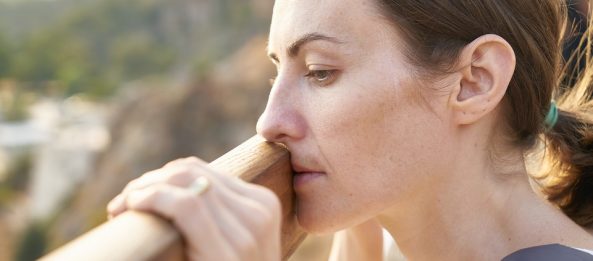
May is ME (Myalgic Encephalomyelitis) awareness month. It’s probably the awareness month for several other medical conditions as well – let’s face it, we have more than 12 of them after all, so maybe we should be going for a week, or even just a day?
Whatever. I’m not going to be posting about ME every single day of May (we’re already on day 4, and this is my first one, after all). But I am going to be posting. Today, I’m going to start with a short description of the illness, and then tell you a little bit about my experience with it.
ME is a debilitating neurological illness with numerous symptoms, including bone-weary exhaustion, muscle pain, joint pain, stabbing neurological pain, headaches, intolerance to light and sound, sleep disturbances, light-headedness, orthostatic intolerance (inability to stand), inability to regulate body temperature, persistent flu-like symptoms, nausea and IBS, fibromyalgia, brain fog, difficulty concentrating, short-term memory loss, slurred speech and more. But the overriding symptom that differentiates it from every other illness is called post-exertional malaise (PEM). This means that patients have a severe, delayed reaction to exercise, and in many cases never return to the same baseline they were at before whatever sent them into a “crash.” Have you ever massively overdone it on the weights at the gym, and been in so much pain you were unable to move the next day? Add that to having influenza and the fatigue you might feel after doing your first marathon, and you might have some idea how it feels. Plus, if you ever do manage to return to our metaphorical gym, you will only be able to lift half the weight you could before. This is no exaggeration: I moved my sofa a couple of inches in mid-December last year (pushed it with my whole bodyweight), and I was confined to bed for weeks. I almost missed Christmas Day – I did miss singing with the church choir on Christmas Eve.
My ME journey began in 2004. I got a flu-like illness that never went away, although I suspect I had already had fibromyalgia for some time before that – it had been misdiagnosed as ankylosing spondolitis. My doctor thought the original illness may have been glandular fever. Strangely enough, the diagnosis made me feel a bit better – I didn’t know then what I know now about ME. I took a three (long) days a week teaching job and tried to just get on with it. That didn’t really work, and I had to resign from the job. However, shortly after that I discovered a local chiropractor, and spent a lot of money on intensive treatment which put me into about 95% remission, or at least that was what I attributed it to. I later learnt that it is common to go into remission in the first couple of years, and for it to come back again a few years later, in a more permanent form.
I spent the next few years working as an actor and also as a supply teacher – two very physically demanding jobs. I thought I was fine. I even did the couch-2-5k programme at one point with my friend Tracy – although I was a terrible runner: I could almost walk faster than I could run. I would train in the gym every day if I could, and I attended Body Pump and Pilates classes. I went clubbing when the opportunity presented itself. I did physical theatre and danced in musicals.
But at a certain point in 2010, I felt the illness return. In retrospect, it had probably been creeping up on me for a while, but I had been too busy to notice. I was temping in an office Monday to Friday, teaching GCSE English catchup lessons in a secondary school on Saturdays, and directing and playing the leading role in a play for which we were rehearsing three evenings a week plus Sunday. (I am a bit of an overachiever, but this is also what it took to make enough money to live on).
My next play was a physical theatre piece. I had to tell the director that I couldn’t do that part of it. Luckily, I had one of the speaking parts, which didn’t necessarily have to involve a lot of movement. At this point, I could no longer run, work out, or go clubbing, but I could still do the dancing required for a musical a couple of years later, go to two tap classes a week, swim, and walk for miles. Standing up for more than a few minutes was beginning to be a bit of a problem though.
Fast forward to late 2014. I had to give up the intervention teaching job I had been doing (in the same school, but through an agency) for several years. By this point, I could only swim for about ten minutes, there was no tap dancing, or cross-city walks, but I could do yoga. Standing for more than five minutes was problematic, as was navigating steps. I had one last stab at work a few months later when I took over the lead role in a play after someone fell ill. I learnt 70 pages of script in five days. I had worked with the director previously, and he set up the stage in such a way that I could sit down whenever I felt the need to. In the third week of our four week run (with a lot of my friends in the audience – it was St Patrick’s Day and I had arranged for there to be a half-price ticket night), everything went black around me, apart from the face of the actor who was right in front of me. I almost passed out on stage. I finished the run, but I haven’t worked since.
A few months later, I left London and moved to a house in the country in the West of Ireland. At first, I could still walk 5 k each day. It would use up at least half of my daily energy, but I prioritised it because made me feel good mentally. Things have got progressively worse since then, and I recently acquired an electric wheelchair. Some of the simplest household tasks are beyond me, such as changing my bed sheets. Although I live in a dormer bungalow, I rarely go upstairs. Sometimes I don’t eat, because I’m not well enough to wash the dishes afterwards.
I have already mentioned the sofa incident. In early 2018, I spent three months in bed after a one-week visit to London. I can no longer travel by any form of public transport on my own. Before Covid 19, I was travelling to my nearest city maybe every 5 – 6 weeks.
ME is what is known as an invisible illness. If you see me, it will be because I am having a good day. If I am having a bad day, week, or month, then I won’t be going anywhere. If I seem to be enjoying myself at your birthday party, I probably am – but I will be paying for it for weeks afterwards. This is the reality of life for people with ME, especially those who live alone. There is no treatment and no cure. We are the #millionsmissing.
Mary Tynan
To understand more about PEM and energy debt, please read my article “Living Life with a Low-Capacity Battery,” which was previously published in The Mighty and Yahoo News.
Galway City native Anne painted this picture of the famous diving tower at Blackrock, Salthill. This picture is particulary poignant, as, in normal times, there are swimmers at Blackrock every single day of the year, with Christmas Day being a particular favourite. Anne says:
“Definitely not comfortable with describing myself as an artist. I was inspired to paint this iconic neighbourhood scene after a thoughtful birthday gift from my sister. I hadn’t painted for decades, pretty much abandoning it after a year of art school when I was 16. However, having enjoyed this painting thoroughly, I will definitely keep it up and hope to improve!”
Ailish Tynan is a world-renowned soprano who has played the lead in operas such as La Boheme, Hansel and Gretel, The Cunning Little Vixen and The Magic Flute, appearing in venues such as The Royal Opera House, La Scala and Grange Park. She also performs extensively at recitals and concerts, and is a regular on the BBC Proms. Here she performs Ein Traum by Edvard Grieg, from his Sechs Lieder, Opus 48, accompanied on the piano by James Baillieu. This was recorded while in self-isolation during the current Covid 19 pandemic. An English translation of the song is printed below the video. Ailish is represented by Steven Swales Artist Management.
A Dream
English Translation © Richard Stokes
I once dreamed a beautiful dream:
A blonde maiden loved me,
It was in the green woodland glade,
It was in the warm springtime:
The buds bloomed, the forest stream swelled,
From the distant village came the sound of bells—
We were so full of bliss,
So lost in happiness.
And more beautiful yet than the dream,
It happened in reality,
It was in the green woodland glade,
It was in the warm springtime:
The forest stream swelled, the buds bloomed,
From the village came the sound of bells—
I held you fast, I held you long,
And now shall never let you go!
O woodland glade so green with spring!
You shall live in me for evermore—
There reality became a dream,
There dream became reality!
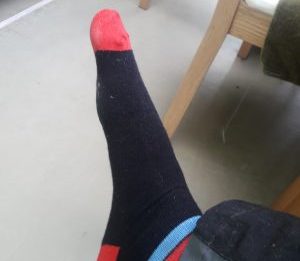
Deliverance it said.
I have been reading. I mean I do read especially if I’m waiting. For a delivery. You become very aware of time. When I’m logged on, when I’m not. You find yourself kind of quantifying your day by how long and how much; like your score.
Anyway, back to what I was saying. I am part cyborg. Or rather we all are. I read somewhere that increasingly we’re kind of fused with our gadgets. Actually it’s not gadgets as a term – I mean, it sounds like they’re toys – but it’s more than that, and anyway they aren’t toys. In fact if I was talking toys, we’re the toys, or, rather, we feel like toys, as though we’re toyed with. You know – the ones the baby suddenly throws out.
Thrown out, or, rather, dropped; it’s like, I imagine, a bungee jump. You’re falling through life, I don’t know, eating breakfast or digging the garden? And suddenly, ’ding dong,’ it chimes. You’re yanked upward or out of it, delivery! And then it’s like, not exactly panicky, just fiddly – laces, pulling the fleece or jacket or maybe even waterproofs on, faffing but only until you’re on the bike, and the phone is mounted on the handlebars, then it goes smoother as your legs kick in, a change of gear. Almost like film being reversed, because you don’t feel completely there; still tasting the eggs.
From there on you can see yourself doing the routine: showing the number, standing back, social distancing, offer the bag, zipping up and back on the bike. Your senses are attuned to the information on the road. Your mind is elsewhere – maybe back at home, or maybe asking will there be another delivery after this. Until you get to the address, when you complete; then you’re back biking it home or ding dong again. This happens whenever you’re logged in; when it doesn’t happen you feel disappointed, because you’re not earning, and when it does you feel disappointed, because you have to sever yourself.
Anyway, reading: this journalist said that technology is becoming more integrated with our lives and work and that algorithms are increasingly ‘making the big decisions.’. He talks about a crisis in liberal democracy. That it has lost its way. It’s becoming less humane: the poor are getting poorer, the one percent are getting richer and governments increasingly are incapable of protecting the interests of the less well off. He says that we are just expected to behave -in particular ways that we’re nudged to, that the market is seen as the highest good, and human beings are no longer special, in themselves, but only ‘big data’ – just a herd whose behaviour can be nudged into particular directions. Technology is part of that. We kind of fit in with it. Not just the web, no, but everything. Social media, it kind of extends us; we live through it but it actually uses us. The power of it for those who own it is big, big data.
And I kind of get that. I do deliveries to people: they pay for food delivery, and we jump, and it is delivered. We are, notionally, clients engaged in a relationship, a business relationship with the company or more specifically the App. We have a very defined part to play, or be played. We do the moving, the physical part. We can say no, but then there’s always the question, will we get another? Will our stats count against us? It’s like sin, karma. Anyway, we don’t really have a choice if we want to get paid; we say yes, and then we do it. We behave by doing the action that they specify. Then we are rewarded. Our fees are increased – not our pay, because we’re not really employed. They invoice us to tell us how much we are receiving.
We are that thing – the zero hours contract thing. All they expect from us is to behave in a particular way, and if we get lucky we get sustenance. But it is quite fickle, the App; it’s an arbitrary god. At least it feels like that. One day it’s all milk and honey: tips galore, short runs, short waits and doubles. You are cooking on gas. But then, will you still love me tomorrow? Clearly, all too often the answer is no. The next day, week or fortnight is a regular desert, with skeletons littering it. Your mind starts playing with you. When it’s going smooth you think you’ve mastered the App.
If I only accept doubles, or short ones or long ones before six, then I will make enough. But the App has no charity. Because then you spend night after night not delivering. Every passing ‘ped’ is someone else receiving blessings, but you’re fated to die. The system always twists the knife. So the App is a cruel, capricious god. Just like the old gods. Just as you feel blessed, a bird shits in your mouth.
Now someone must have coded that, or made it a feature, because there are definite red letter days, and each rider has them and they rarely coincide. It all seems calculated to keep you guessing, hoping that today will be the day. Maybe it’s a behavioural nudge.
He who wrote the book says we can make one powerful choice, that is to refuse. He sees these moments of refusal as the significant moments. He even goes back to the old gods. Apparently the end of the persecution of Christians within the Roman Empire, and the empire’s subsquent adoption of Christianity, came about as people gave up on the daily performance of rituals in temples to those old gods. People recognised that the routine sacrifice and repeated offerings given actually made no difference to the run of fate. The character of the gods in legend and myth was frequently cruel and despotic, as though the storyteller was trying to explain their indifference to the lives of their worshippers.
The algorithms of the gig are similarly disinterested. Nothing moves them other than wealth accrued. The system similarly relies upon a stunted belief that human needs can be easily met by a greasy morsel presented by an economic inferior, kept in line by a system that favours any who own, and that promises a ladder of improvement to those who buy into acquiring first, a bike and then, a moped with all attendant insurance and security paraphernalia – those willing to submit to the futility of chasing the next good day. This all presented as the nature of the world. It is a line that cannot be questioned. The owners have always owned, and everyone needs to be driven by hunger and need. I wonder how, if ever, the rejection of the old gods can ever be echoed by a similar refusal to labour for such meagre reward?
Maybe the virus has created a window through which another vista is visible? It has certainly created a moment. A kind of sustained pause, a buffering point, at which our frantic ritual travel seems more intensely futile. Against the static painted backdrop, we plunge through the night – only the ambulances have similar urgency – every time the notification chimes. Our status as ‘key workers’ has risen. People frequently tip us and comment upon our service to them and the community. Strangely, this kindness of strangers throws the austere fees we receive from the App into sharp relief. This all occurs in a moment when the economy is faltering, economic activity largely halted.
This gap is less bridgeable for some. Many are living on borrowed time. Reserves are stretched. Disposable income is no more. Some who hoard wealth can sit back on their haunches and wait to pick the carcass clean. But we can all make a decision to not be bound by this, to not deliver. To not accept property as the rule. Eat the food you were to deliver. Insist that hoarded wealth in offshore havens pays out and is redeployed. Bankers bail society out rather than the reverse.
The writer I refer to as ‘journalist’, is Paul Mason, who’s book ‘Clear Bright Future’ I highly recommend.
Ian Macnaughton
Ian is an actor, writer and Deliveroo courier who lives in London.
Laney Rie is a singer songwriter from Colorado. She has been writing songs since she was 12. Her inspiration comes from her life experiences and the people she has come in contact with. Her musical style is indie pop, with mellow piano and poetic song lyrics. Laney has a soulful sound, especially for her youthful age. She wants her music to impact people in such a way that they don’t feel alone in this world.
This is our second song from Laney this launch weekend. Her EP, Childish Dreams, can be purchased from Apple Music.
Yesterday I received four calls from a blocked number. This has been going on for weeks now.
I received them, but I didn’t accept them. Nor will I, no matter how often the dastards call. Like many others, I won’t answer blocked numbers. The era of friendly, unsuspicious telephone-obedience is over, and good riddance to it. Telemarketers, stalkers, creditors and odious prank-calling radio DJs have brought the age of telecommunications innocence to a shameful, paranoid end, like a bankrupt businessman’s relationship with first-class airport lounges.
These days, making a call with your number blocked is like wearing a balaclava to a speed dating event. It’s like covering someone’s eyes from behind, yelling “Guess who?” but refusing to take your hands off. It’s like going to a job interview with one of those black rectangles from old-style “identities concealed” news reports pasted over your upper face (which would actually be totally cool, now that I think of it).
You may well be experiencing similar harassment yourself; I know of two other confirmed cases (and we’re all on the same network, for whatever that’s worth). One guy, Dave, actually answered recently, and got thirty seconds of silence before he hung up. But still that infuriating impersonal buzz keeps coming.
It’s gotta be a call centre. If a reasoning human being was behind this, and they really wanted to get through, surely they’d have the cop-on to change the “send number” setting on their mobile, or fire off a text message. If they’re using an unlisted landline, they should know that entering 142 before dialling makes your number visible just for that call.
Call centres, on the other hand, navigate by the pure hard stars of bits and bytes. Once your number’s on their list, once you’re scheduled, then no force on earth can prevent that hateful ring-ring from finding you. Their evil computer brains advance-call the next number even if no-one’s yet ready to talk to you. Not a microsecond of company time is wasted; immediately poor Jimmy Q Agent on node 212 finishes one call, he’s connected directly to you or me, wondering who the hell this is while he fumbles the intro of his why-you-need-underpants-insurance spiel.
Except he won’t be connected to me. I don’t care how often he calls, who he is, or what he wants. I’m not taking his call. Show your number, you dirty feckers, and maybe we can talk.
George Wells
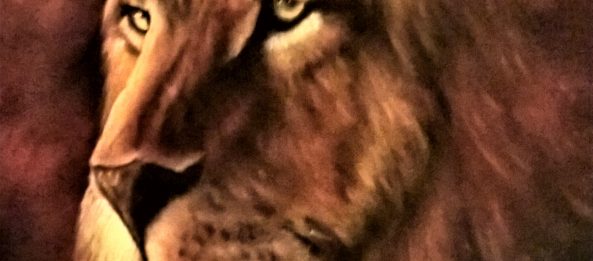 Image
Image
Artist Joy-Elizabeth Mitchell is based in West Cork. Her specialities are Animals and Birds, statements of injustice, and landscapes. She also take commissions. The three paintings below are for sale. For details of these, or to discuss a commission, you can email her on joyelizabethmitchell09@gmail.com.
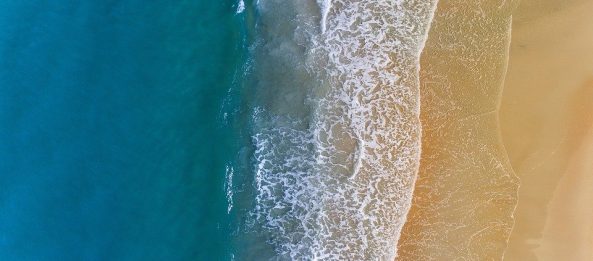
Today we are lolling on bright red towels at Inchydoney beach. The tide creeps out, and a black and white sheep dog and a toddler wearing swimming trunks race each other along the water’s edge. It’s good to breathe in the tangy air. Fachtna has been reading a thriller, turning the pages at a rapid speed, but he soon tires of it all, and joins me in my favourite pursuit – people watching.
A young woman ambles by, her feet sinking into the soft sand, her body swaying with the weight of her bump. She wears a yellow sundress, and moves regally, despite her awkwardness. Fachtna picks up his book, shields his face. I lie back and shut my eyes. We came here to get away from it all.
Two weeks ago we finished the last round. The hope-despair cycle. I suggested adoption last night, but was met with stony silence. Maybe he will warm to the idea.
And in the meantime there is this: a July afternoon, the sand scorching my heels, a barking dog, a giggling toddler. One empty bank account, two worn-out people, three days of marriage-mending.
The sun glistens silver on the tops of the waves. The beauty of it hurts my eyes. Must post a picture to Facebook. Our friends will be envious of our long weekend away.
Geraldine McCarthy
Geraldine McCarthy lives in West Cork. She writes short stories, flash fiction and poetry, in both English and Irish. Her work has been published in various journals, both on-line and in print.
Aurora is a highly talented London-based puppeteer and actor.

Welcome to the relaunch of Notes from Xanadu. The next four days will witness the transformation of the site from online magazine to online arts centre.
Our homepage has always said Welcome Home. It’s been a place to come in, take your shoes off and relax with something to read, whether that be fiction, poetry, articles or reviews. We’ve never published a bad review – if we couldn’t find something good to say, then we wouldn’t say anything at all (but that never happened). We reviewed theatre, art, books, opera, film, eateries, and even, on one occassion, a karaoke booth. It was a home from home that gave you ideas about what to do outside the home.
And now many of us are confined to the home. On deciding to relaunch Notes From Xanadu at this point, it was decided to make it into much more than an internet magazine. I personally had a list of ideas for an arts centre, and decided to see how much of it could be implemented online – quite a lot, as it turns out. We have art, music, puppetry and of course writing, much of which explores the theme of staying at home or living online, as well as how the “new normal” is for the people who do go out to work.
For many people, the online way of life has been a reality long before Covid 19. I am thinking in particular of the chronic illness community, of which I am a member. Most of us are severely limited in how much time we can spend out and about; some are completely housebound; some are bedbound. The internet is a place for people to connect, share thoughts and ideas, and even study – for those who are well enough. This is particularly true for people who live alone. Other people may find themselves in the same boat by virtue of living in a remote location. We have always known how to do as much as possible online. The coronavirus has taught others the same skills. There is a lot of talk about the downside of the internet – people being addicted to their phones, not having real-life conversations, preferring the virtual world to the real world. But in reality the lines between the two are blurred.
And so here we are, bringing it all back home – online. Welcome to my world. Welcome to our world. Welcome to Xanadu.
Mary Tynan
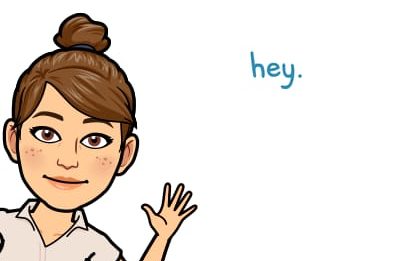
Transplanted. Geeking out about most things AI, law and quantum, offline and online, when not spending time with the family, pets, and friends. Expect commentary on food and wine from time to time.
What are your summer plans? I can tell you that we were planning on a trip to the seaside, possibly to a hotel. This was besides quite a long list of day trips out to touristy joints such as the Cliffs of Moher. We were perhaps partly planning at some point to go to Disneyland Paris*. These things obviously depended on work going well. You know, because I’m ‘self-employed’** and these things are generally achievable and within our control.
Well, Mother Nature, God, the Universe and everything else has handed us 2020 on a plate with a side serving of ‘screw your plans, human’! I suppose at this point on day whatever of whatever we call this situation – lockdown? quarantine? self-imposed semi-solitude while we count our loo rolls? – it is as good a time as any to practice gratitude, mindfulness and everything else akin to such.
I’ll start with gratitude for the fact that we likely won’t be subjected to masses of humanity in small enclosed spaces over the summer. Most likely you, dear Reader, will have experienced the deep joy of overwhelm and meltdown, as we have on several occasions, in the midst of activities that had previously been begged for with much persuasion. So, I am thankful that I can just cite COVID-19 LOCKDOWN 2020 in response to any such Disneyland related requests, parks and cruises included. My screw you to TV advertising during prime time! We’ll save a few ‘youro’ in the meantime too. Happy days.
Let us move on to mindfulness and living in the present moment, because, let’s be honest, there doesn’t seem to be a single human on this earth that can tell us what tomorrow will bring. Our default is the present moment. And it’s pretty damn uncomfortable! I’m on the verge of doing the |||| / on the wall above my desk. I keep having to ask what actual day it is. Now, more than ever before, we realise what a man-made construct time in fact is.
Everything else akin? Well, I for one am at the stage of hands in the air and do what you want***. Really, I am. I am a compulsive goal setter, planner and organiser. These are great skills in the context of a regular and functioning system. Right now, not so much. They are anxiety causing beasts.
Which brings me to the last point of this likely last column because like our previous reality, all changes at some point****. Was ‘before’ regular and normal? Is the universe resetting? Should we have taken the other colour pill? Forgive me, I seem to have woken up in the midst of the type of ridiculous movie that I usually don’t go and watch because when will that ish ever happen to us? Daily life feels like driving in the mist. It just swirls without context or horizon.
So, with time passing as it inevitably does, this summer, you might find me and us here at home, braai’ing*****, fixing up the garden and generally enjoying each other’s company. Outsiders of the household might be welcome but keep your two-metre distance. Happy days!
*The smallies were negotiating a cruise. Not going to happen ever because I have the words DIAMOND PRINCESS forever burned into my prefrontal cortex. Everything from hereon in will be put through the COVID-19 LOCKDOWN 2020 filter.
**On my LinkedIn though, I’m a director, lead auditor and consultant. Sounds so much better, no?
***But only after the daily schedule has been strictly adhered to – school work, cleaning, meals by the clock.
****Someone else can have a turn now!
*****Because barbecuing apparently holds a whole cultural context that we have yet to wrap our heads around.
Philipa Farley
Laney Rie is a singer songwriter from Colorado. She has been writing songs since she was 12. Her inspiration comes from her life experiences and the people she has come in contact with. Her musical style is indie pop, with mellow piano and poetic song lyrics. Laney has a soulful sound, especially for her youthful age. She wants her music to impact people in such a way that they don’t feel alone in this world.
We will be featuring more songs by Laney over the launch weekend. Her EP, Childish Dreams, can be purchased from Apple Music.
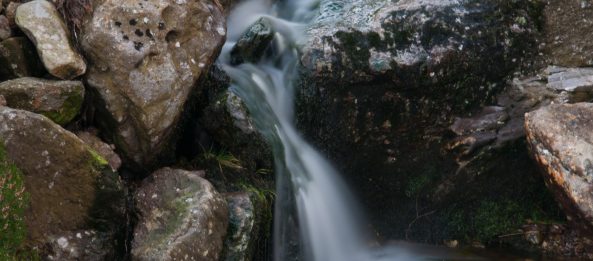
This is the first of two exhibitions in our gallery by Colin this weekend. The second, entitled “Bugs” will debut on Monday, 4 May.
“I have had a 4 plus decade relationship with photography mostly as a high level amateur and a couple of years fully professional both in Ireland and back home in New Zealand. My main commercial work to date has been in family and event photography.
I am fascinated by the technical aspects of photography. I learn the capabilities of the equipment and then push them. When combined with my computing background I can get some pleasing results. Sadly the artistic side is hard to teach but I am told I have a good eye.
I hope you enjoy my images. Prints of all these images are available to buy up to A3 size. My website is www.byfocal.ie and I am on fotocommunity.com as Colin S Byford.”
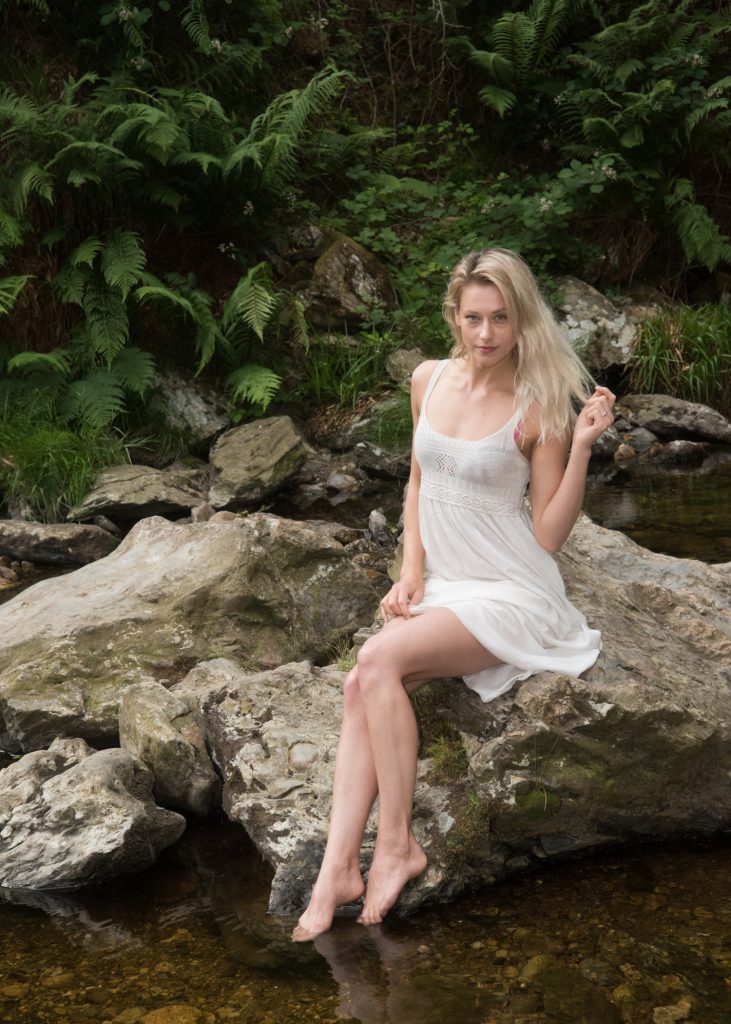
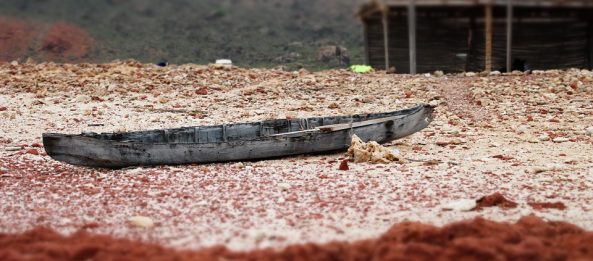
As the elderly Boeing 727 took off from Abu Dhabi and banked around a huge thunderstorm, I realised I was heading somewhere different. In 1998, I was on my way to the port of Aden in Yemen. As the plane approached the airport there, the burned-out hulks of aircraft littered the airfield around the runway. The terminal building itself was gouged out with a huge bomb crater, the scars of a civil war that had ended 4 years previously. We had to enter the arrivals area via the men’s toilets. I was held up by customs who insisted on writing a lengthy note in my passport because I was carrying a (then relatively rare) Toshiba laptop.
I had been sent there by my employers to help commission a telephone exchange. Aden was blisteringly hot as well as being a bustling madhouse, with a good chunk of the city inside a volcanic crater. The base station for our new mobile system sat on top of a ridge at the edge of that crater, over razor sharp lava fields. It was so hot that the 4×4 we used to get there had two air conditioning units. The icy chill of the 4×4’s interior was a huge contrast to the waves of heat radiating from the lava field on which the base station was built.
The telephone exchange was in cooler surroundings, but still extremely hot. A trip to the bathroom involved shooing the rats out from under the toilet! Outside the bathroom was a tented area, at which the faithful prayed several times daily. The calls to prayer from the muezzins were piped over loudspeakers all over the city. It is a sound I will never forget.
The sea was as warm as bathwater to swim in, and we went for a dip one evening, right next to the huge desalination plants which supplied freshwater to the city. Swimming was very pleasant, but not effective for cooling down! The food at the hotel we stayed in was excellent, but I made the mistake of sampling a local drug called Qat. Qat is a leaf which, when chewed, is pleasantly sweet and gives a very mild narcotic buzz. A British colleague described it as “chewing a Privet bush.” It was certainly not unpleasant and it was not unusual to see Yemeni men with a wad of Qat shoved in a cheek for chewing.
Unfortunately, in my eagerness to sample local customs, I had forgotten basic food hygiene and cleanliness. As a result of my Qat–chewing, the subsequent stomach upset caused me to rapidly lose 5 kilos over the following week. The rat–infested toilet was a frequent visiting place. It took 15 hour’s unbroken sleep to finally clear the bug and recover some sense of normality.
Yemeni men used to walk around hand-in-hand and Yemeni women invariably wore black abayas with a slit opening for eyes. Underneath their severe outer clothing, however, you could frequently see a colourful and fashionable shoe peeping out. I was lucky to experience how friendly and helpful Yemenis were: I never felt threatened or unsafe there. Whilst, at the time, there was a habit of kidnapping foreigners, they were always well treated. So much so, that a French kidnap victim was presented with an AK47 on his release and wrote a letter of release to his captors. Unfortunately, this friendly practice ended when the government started to shoot kidnappers, a counterproductive practice that resulted in the deaths of several victims. It was surely a sign of future trouble in the country.
After two weeks, the telephone exchange installation was successfully completed. I was able to make mobile telephone calls on the system, always a gratifying experience. Unfortunately, I had less than 12 hours to enjoy the fruits of my labour. At short notice, I was asked to travel to Egypt to talk to customers in Cairo. I had to travel to Sana’a to catch the flight because of an airline strike in Aden. This involved a 400km journey in an aging Peugeot 305 with a Qat-chewing(!) taxi-driver.
The countryside was epic. It rose from dry wadis near the coast through rocky foothills and mountains to an elevation of over 2000 m in Sana’a. We passed through dusty little villages of cube-shaped houses, as the air grew cooler and the countryside greener. There were frequent military checkpoints and, unknown to me, a lot of the rural areas had local chieftains who were the ones kidnapping foreigners.
The taxi-driver, however, was a lunatic. There’s a scene (not that one) in Basic Instinct where Sharon Stone subjects Michael Douglas to a hair-raising high-speed drive along a narrow cliff road, overtaking into oncoming traffic. My driver did the same thing while nonchalantly chewing his Qat (he did offer me some, but I politely declined).
I arrived in Sana’a unscathed. At 10,000 feet altitude, it was lovely and cool, with much more greenery than the coast or inland. A misunderstanding about my hotel destination lead to a lively conversation between my driver and some locals. All were intent on me arriving safely, and I did – just in time for dinner with a Ukrainian colleague, before an early morning departure to Cairo. When I arrived in Amman for a connecting flight, it was a pleasant shock to see the faces of women again.
Arriving in Cairo, my local contact was crestfallen to see I had no business suit. Unfortunately, I had packed for technical work at a telephone exchange, not visiting customers. Interestingly, all the management of the mobile service provider were women, which went slightly against the stereotype of Middle Eastern countries.
Compared to Aden, Cairo was a huge metropolis – but, nevertheless, another bustling madhouse. Nearly every taxi had dented side panels, as driving was regarded as a contact sport. I spent a couple of days there, with one notable dinner by the banks of the Nile. I did see the pyramids briefly from an aeroplane window on my departure.
Simon Woodworth